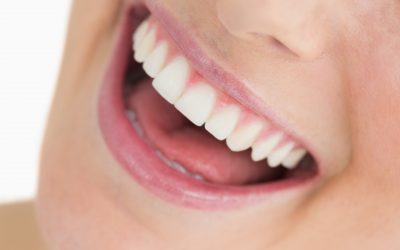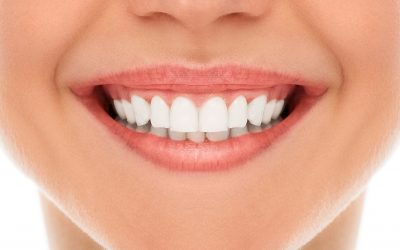Tooth sensitivity occurs when your dentin becomes exposed due to receding gum tissue, leaving nerve endings vulnerable to stimuli like hot, cold, sweet, or acidic foods and beverages, leading to sharp yet temporary discomfort. Tooth sensitivity is a prevalent dental issue that affects millions of people worldwide, making everyday activities such as eating, drinking, and brushing uncomfortable experiences. Learning to prevent tooth sensitivity is paramount for oral health, comfort, and well-being.
Understanding Tooth Sensitivity Causes
Tooth sensitivity
is a widespread dental issue that affects many individuals, often leading to discomfort or even pain when exposed to certain foods and temperatures. To effectively address the cause, we must understand its source.
Erosion of Enamel:
Tooth enamel erosion is often the culprit of sensitive teeth and can occur due to aggressive brushing, acidic foods and beverages, or teeth grinding. Once worn away, exposed dentin – an inner sensitive layer below enamel – leads to discomfort.
Recession of Gums:
Recessing gums can be caused by periodontal disease and exposing the teeth’ roots that contain tubules leading directly to their nerve. When exposed, this allows hot, cold, or sweet foods to reach this sensitive nerve, inflicting discomfort and leading to further receding of the gums.
Dental Procedures:
Sensitivity may arise after dental procedures such as fillings, crowns, braces or teeth whitening; although usually temporary, it should be monitored if it persists.
Cracked Teeth:
Cracks in teeth may become filled with bacteria from plaque, leading to inflammation in the pulp of the tooth and increasing sensitivity.
Tooth Decay and Cavities:
Cavities expose dentine or even the inner pulp of teeth, leading to pain-inducing sensitivity and tooth decay.
Bruxism:
Grinding your teeth (bruxism) can wear away enamel and lead to greater tooth sensitivity, leading to tooth wear and eventual fracture.
Understanding the causes of dental sensitivity is the first step toward managing it effectively. Good oral hygiene practices and visiting a dentist regularly for check-ups and professional advice may also help, especially if persistent discomfort exists.
Sensitivity Stopper: Your Blueprint for Preventing Tooth Discomfort
Proper Brushing Techniques:
It is imperative to brush your teeth gently using a soft-bristled toothbrush with soft bristles in a circular motion using soft bristles only to avoid wear-down of enamel and receding gums from hard brushing. Use only gentle horizontal strokes.
Desensitizing Toothpaste:
If thinking can sensitive toothpaste make teeth worse then the answer is. Regular use of desensitizing toothpaste may provide relief. These pastes contain compounds that reduce nerve stimulation from reaching the surface of teeth to nerve endings.
Fluoride Application:
Fluoride strengthens tooth enamel and desensitize teeth while alleviating tooth sensitivity symptoms. Consult with your dentist about using fluoride treatments during routine dental visits for the most efficient application of this substance.
Limit Acidic Foods and Drinks:
Acidic foods and drinks such as citrus fruits, tomatoes, and carbonated beverages can erode tooth enamel quickly, so limit their intake as much as possible by drinking through a straw when drinking acidic drinks. This will minimize their impact on teeth.
Consider Wearing a Mouthguard at Night:
If you grind your teeth during the night, wearing a mouthguard could help protect against enamel wear and lead to increased sensitivity. Grinding may wear down enamel over time and cause this damage.
Healthy Diet for Strong Teeth:
For optimal oral health, eating foods rich in calcium and phosphorus, such as dairy products, fish, and tofu, is highly beneficial in keeping teeth strong. Dairy products, fish, or tofu are great sources.
How to Manage Tooth Sensitivity
Even with all your efforts, if you experience tooth sensitivity, here are ways to manage teeth sensitivity it:
Soft Toothbrushes Can Reduce Irritation:
For gentler teeth and gum care, opt for soft-bristled toothbrushes instead. A soft-bristled brush may reduce further irritation by providing extra comfort while brushing.
Warm Water:
Warm Water should be used when brushing. If cold water irritates you, try switching to warm or even lukewarm water instead.
Avoid Trigger Foods and Beverages:
Determine what triggers your sensitivities and limit their consumption as much as possible.
Consult Your Dentist:
If sensitivity persists, it is wise to visit your dentist for diagnosis and treatment advice. They can identify the source and recommend appropriate remedies.
When to See a Dentist?
If you experience persistent or severe sensitivity for more than several days, or it accompanies other symptoms like visible tooth decay, pain when biting/chewing or gum swelling; seeing a dentist should be prioritized to quickly diagnose its source. A dental appointment could include anything from cavities and gum disease to enamel erosion or erosion causing further complications and provide relief – timely intervention could prevent future complications and bring relief more quickly than waiting – regular dental check-ups play a vital role in keeping oral health in check and early identification of issues like sensitivity – your comfort and oral wellbeing is our number one priority!
Closing Thoughts
Dental sensitivity is embarrassing and can dramatically impact your quality of life. By taking preventive steps and seeking professional advice when necessary, you can alleviate discomfort and enjoy healthier and more comfortable smiles. Remember, oral health is an integral component of overall well-being. Routine dental check-ups and effective dental hygiene practices protect against tooth sensitivity and maintain a healthy mouth. If you are experiencing tooth sensitivity or having concerns with your oral health, don’t hesitate to reach out Dr. Savita the best dentist who is there to support and guide your journey toward a more comfortable smile!




